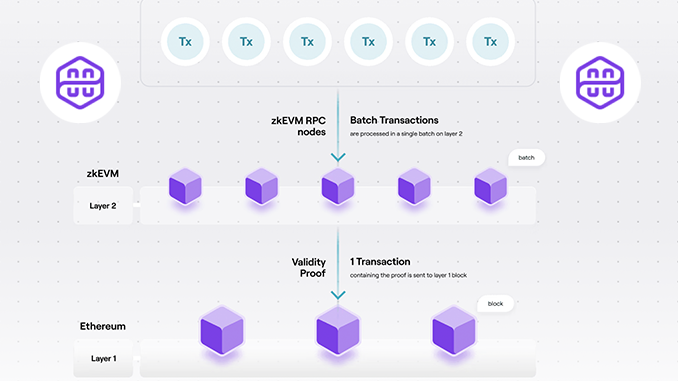
At Polygon (MATIC), a future-oriented module, zkEVM, is to be integrated on March 27. Before the launch, however, doubts are being raised about the concept – piquantly from Solana (SOL), a competitor.
In the crypto industry, a concept called zk (“zero knowledge”) is the technological hot topic these months. Polygon (MATIC), one of the 20 most capitalized global cryptocurrencies, plans to put zk into practice for the first time on March 27, where the project is known as zkEVM. But ahead of the launch, criticism is being voiced. Anatoly Yakovenko, co-founder of Solana (SOL), warns via Twitter against exaggerated expectations. zk cannot bring the progress in terms of scalability that is publicly communicated, Yakovenko writes, attacking Polygon as well.
The remarks from Solana’s camp are additionally piquant because they have already been teased several times in the direction of Polygon. And also this time the answer was not long in coming. Polygon developer Jordi Baylina, who works directly on the zkEVM for MATIC, also accuses Yakovenko via Twitter of drawing the wrong conclusions in his line of argument. On closer inspection, both opponents seem to be making their points.
In essence, Yakovenko explains that a zk module in it will have trouble processing requests for transactions at the pace at which the participating blockchains themselves are progressing. This is because even though zk stands for “zero knowledge” for validating orders in smart contracts where only minimum information is included, zk needs to reconcile and synchronize its results with all entities. This is hardly possible in practice, especially when a blockchain is already groaning under order load during peak times, Yakovenko writes. For Polygon, Baylina points to the upcoming MATIC zkEVM’s ability to bypass potential bottlenecks through parallel requests. As a result, he says, validations can be expected within 30 minutes.
Conclusion: Principle zk overrated at Polygon and Co?
zk skeptic Yakovenko concludes from his arguments that a Layer 1 solution like Solana remains the measure of all things for organizing complex smart contracts at high speed due to its self-contained mechanism. However, Solana in particular is known for recurring network outages, and just last week it was down again for long hours. Polygon, on the other hand, is not alone in its enthusiasm for zk; Binance Chain is also working on integration, and zkSync has already had a corresponding module enabled for certain user groups since mid-February. Important for investors and users: For the time being, the future zkEVM Mainnet Beta at MATIC will only be an alternative to the current validation mechanism and any difficulties should therefore not harm Polygon as a whole.

Leave a Reply